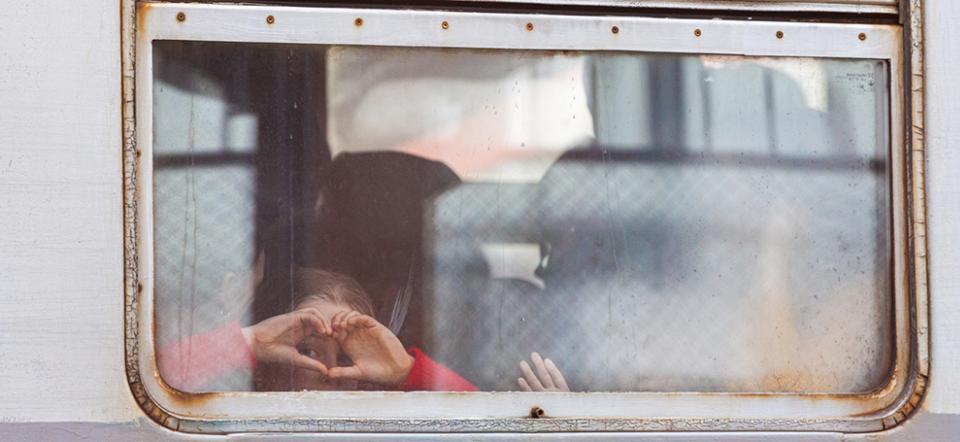Russia’s war of aggression against Ukraine saw an immediate reaction from the global community. The Nordic and Baltic countries have provided economic, military and humanitarian aid to Ukraine.
Shortly after war broke out, the Nordic Council of Ministers chose to freeze all co-operation with Russia and reallocate the funds. Some of these funds have gone to a newly established research network, which will generate knowledge about Ukraine that can assist the Nordic and Baltic countries in their efforts to help with rebuilding the country. It is NordForsk's role to coordinate and facilitate the new research network.
Anne Pintsch is an associate professor at the University of Agder in Norway and leads the network that consists of researchers from various countries, including Ukraine, who work at Nordic or Baltic universities and think-tanks. The steering group and working group leaders are from OsloMet in Norway, Nordic Ukraine Forum, Stockholm University, University of Agder in Norway and the University of Eastern Finland.

What has prompted you to establish the Ukraine network?
“What we’re seeing is that, since the start of the war, the Nordic Council of Ministers, as well as the Baltic and Nordic countries have provided military, humanitarian and economic aid to Ukraine. But in order for this aid to be as effective as possible, we need more knowledge about Ukraine and this is where our newly established Ukraine network comes into play. We believe there’s a need for expert knowledge from the Nordic and Baltic countries, as well as from Ukraine, especially as we intend to help rebuild Ukraine.”
To outsiders, Ukraine appears to have played a small role in research on Russia and Eastern Europe. Is it true that the research has been mainly focused on Russia?
“There are very few studies of Ukraine. Most often, the country is mentioned only in relation to studies of Russia. Some of my colleagues have written a report in which they demonstrate this. Ukraine has often been seen through the lens of studies of Russia, and the lack of separate research on Ukraine poses a problem. It’s absolutely necessary that we gain a better perspective of Ukraine and bring the knowledge of Ukrainian researchers into play.”
What are you hoping to get out of this network?
“We’ll reach out to political decision-makers, the Nordic Council of Ministers and authorities at the local level, where knowledge is needed. We want to be a platform if someone needs data or an expert, but we’ll also actively try to reach the politicians. Although we often publish research results in academic journals, we have to reach political decision-makers through other channels and express ourselves in such a way that makes it easier for them to make use of our findings.
And although it doesn’t seem likely that the war in Ukraine will end soon, we believe we can make a contribution to the rebuilding of the country already now, even though it’s still at war. For instance, when we look at the electricity grid, we have to start rebuilding it now. This is just one example of the need to rebuild infrastructure despite the fact that war still rages.”
Your network is divided into working groups. Why have you chosen these six topics?
“Our starting point is rooted in the Nordic Council of Ministers’ Vision 2030 and we’ve chosen our six topics based on it. The topics also reflect that we’re a team of six project managers who each have expertise in our own area: Refugees and migrants; EU integration; climate and the green economy; civil society; social trends and democracy; and institutions, digitalisation and anti-corruption.”
How do you ensure that the needs of Ukrainians are actually taken into account?
“This is ensured thanks to four of our six group leaders being from Ukraine. They have close ties to the country, and we’re also trying to get other Ukrainian researchers involved in the working groups. At the same time, it’s good to have researchers who aren’t from Ukraine so that we get different angles and perspectives.”
What interest do the Nordic and Baltic regions have in helping to rebuild Ukraine?
“In order to achieve the Nordic Council of Ministers’ 2030 Vision of a green, competitive and socially sustainable Nordic Region, we must have a safe and stable Europe. We aren’t safe until our neighbours are safe. There are threats of the use of nuclear weapons and these affect us all. Therefore, we have to help ensure stability and security in Ukraine as this also benefit us in the Nordic and Baltic regions.”
The EU and the US are also focusing on the rebuilding of Ukraine. What can we in the Nordic and Baltic regions contribute that others can’t?
“The Nordic approach to democracy is extremely important given our leading position in terms of freedom of the press, freedom of expression and other democratic values. The Nordic countries are also welfare states with healthy economies, so we have the opportunity to provide considerable financial aid to Ukraine, and we have strong civil societies. The Baltic countries can contribute a great deal of knowledge on Ukraine and an understanding of the country’s situation because they’re former Soviet states themselves. They know what Ukraine is going through.”
What impact do you think Russia’s invasion of Ukraine will have on the research community?
“Although studies of Ukraine have been largely absent from research so far, I believe this will change in the future. After Russia’s invasion, more people have become aware that Ukraine is an independent country and not part of Russia, and there has been greater awareness that Ukraine is an interesting and important area for research.”

